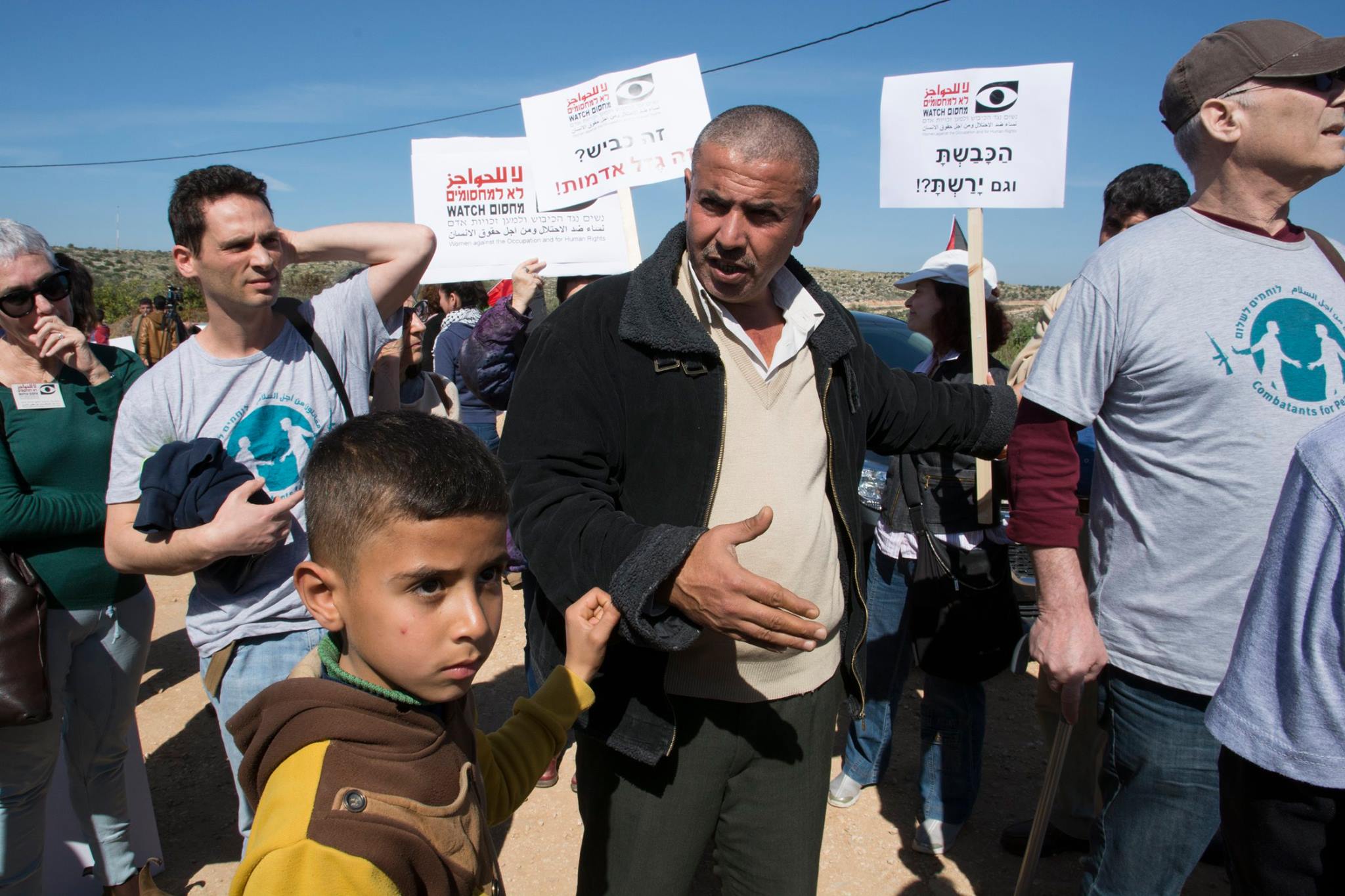
In exchange for Sisi’s enforcement of Gaza’s blockade, Washington ignores his human rights abuses at home, states Foreign Policy.
In October 2013, at the age of 17, I was arrested during a demonstration in Cairo against the military coup that would bring Egypt’s Abdel Fattah al-Sisi to power, says Abdelrahman Elgendy, an Egyptian writer and journalist who was a political prisoner in Egypt from 2013 to 2020, in a piece published by Foreign Policy, continuing:
Along with 67 other protesters, I was charged with unlawful assembly, subjected to a mass trial, and handed a 15-year sentence in a maximum-security prison.
After six years and three months as a political prisoner, an appeal from my family to the Egyptian public prosecutor’s office led to an unexpected investigation into the circumstances of my trial and my release in January 2020.
Those six years in prison represent a significant portion of my life. And I am not alone. Egypt under Sisi has suppressed protests and massacred thousands of people.
It is unknown exactly how many people are imprisoned in Egypt, as the government has not publicly released detainee numbers since the 1990s; however, some human rights groups have put the number at more than 60,000, including both those who have been convicted and those in pretrial detention, while other estimates put it as high as 120,000. Many of these people have been incarcerated for more than a decade.
Sisi’s military regime receives extensive financial and political support from the U.S. government, primarily to serve the U.S. objective of maintaining Israel’s security, as well as for counterterrorism cooperation.
The United States’ unyielding support for Israel—to the tune of more than $3 billion in military aid annually—has come under increasing scrutiny amid the horrors that Israel is perpetrating in the Gaza Strip. The territory has been under heavy Israeli bombardment and a “complete siege” for three weeks now. Thousands have been killed as humanitarian conditions grow more and more dire.
Palestinians pay, by far, the biggest price for Washington’s backing of Israel. But Egyptian political prisoners have become collateral damage, too.
In August 1978, on the eve of the Camp David Accords, the U.S. and Egyptian governments signed a bilateral assistance agreement that envisioned a long-term aid relationship between the two countries.
Following the 1979 peace treaty between Egypt and Israel, the United States provided Egypt with a significant economic aid package of about $1 billion, in addition to the inaugural loans earmarked for weapon acquisitions. At the time, it was the second-largest economic aid package in the world—behind only U.S. assistance to Israel.
As Amy Hawthorne wrote in a 2016 report for the Project on Middle East Democracy, “Over the next two decades, the economic aid package grew into a massive program of $840 million annually, on average, and took its place, along with $1.3 billion in annual military aid, as a linchpin of the ‘strategic relationship.’”
Today, Egypt continues to receive more than $1.3 billion annually in U.S. military aid, aimed at maintaining Egyptian-Israeli peace and positioning Egypt as a key security partner in the Middle East. In return, Egypt has taken an active role in enforcing Israel’s 16-year blockade of the Gaza Strip and collaborating with Israel on security measures.
In 2013, after the coup that I protested, the Obama administration faced a conundrum. Officially labeling the event a military coup would carry legal consequences for the United States, jeopardizing aid allocated for Egypt. That’s because section 7008 of the Consolidated Appropriations Act—commonly referred to as the “coup clause”—stipulates that U.S. foreign aid cannot be provided to any country where a military coup deposes an elected government.
Washington’s enforcement of this policy became ambiguous. At the time, the New York Times quoted a senior Obama administration official who explained how the United States would bypass this dilemma. “The law does not require us to make a formal determination as to whether a coup took place, and it is not in our national interest to make such a determination,” the official said.
“We will not say it was a coup, we will not say it was not a coup, we will just not say.”
The U.S. government has since continued to use legal and logical maneuvers to support Egypt’s military regime and bolster Israel’s security. This pattern has been upheld by presidents and administrations of both parties, from former Presidents Barack Obama to Donald Trump and now President Joe Biden.
Obama openly articulated this stance during a speech at the United Nations General Assembly in September 2013: “The United States will at times work with governments that do not meet, at least in our view, the highest international expectations, but who work with us on our core interests.”
In 2018, during the Trump administration, Secretary of State Mike Pompeo invoked a national security waiver to release $195 million in aid to Egypt that had previously been suspended because it was tied to human rights conditions. One year later, Trump lauded Sisi as his “favorite dictator.” Biden began his term in 2021 more assertively, announcing “no more blank checks for Trump’s ‘favorite dictator.’”
Yet conflict in Israel quickly—and drastically—changed his rhetoric.
The May 2021, escalation in Israeli-Palestinian violence—when rockets fired by Hamas in response to tensions in Jerusalem prompted an Israeli bombing campaign in Gaza—presented Sisi with a golden opportunity to assert himself as an indispensable U.S. ally in the region. He swiftly stepped in to mediate the cease-fire between Israel and Hamas and restore his favor with the Biden administration.
That year, Secretary of State Antony Blinken chose not to invoke the national security waiver that Pompeo had used but still managed to disburse funds through two legal workarounds. The Biden administration cited a provision allowing it to channel money into specific initiatives, such as counterterrorism and border security—working around the waiver—and invoked a clause that limited the amount of money withheld for human rights concerns to $130 million, thereby facilitating the release of the rest of the funds.
As a result, Egypt received $170 million in military aid, with the stipulation that the remaining $130 million would be dependent on the country meeting new human rights conditions.
Several rights groups noted that this decision represented an even weaker human rights stance on Egypt than that of the Trump administration. Once again, Washington confirmed that upholding Israel’s stability is more important than the plight of tens of thousands of Egyptian political prisoners and dissidents.
The United States holds significant sway over the fate of political prisoners in Egypt. Since 2013, any leniency that Sisi’s regime has shown on human rights has mostly come in response to U.S. pressure.
In response to the State Department’s 2021 decision to withhold the aforementioned $130 million in annual security assistance to Egypt—citing the country’s detention of political prisoners as a concern—the Egyptian regime undertook seemingly significant reforms.
Sisi introduced a new human rights strategy and declared 2022 the “year of civil society.” He inaugurated one of the world’s largest prison complexes but compared it to a “five-star hotel”—describing it to a national TV program as an “American-style” facility in an attempt to portray it as luxurious. Promotional videos highlighting the complex’s features were all subtitled in English in a nod to Sisi’s U.S. benefactors.
Then, Sisi announced the reestablishment of the presidential pardon committee for political prisoners and initiated calls for an extensive political dialogue with civil society groups and the opposition. Over the past year, a number of high-profile political prisoners, such as Ziad El-Elaimy, Mohamed El-Baker, and Ahmed Douma, have been pardoned. But Egyptian activists and political analysts assert that these moves are mere window dressing amid continued reports of intensified political repression.
A prevailing sentiment in Egypt is that the United States, with its vested regional interests—especially in ensuring Israel’s security—does not truly challenge Cairo. This apparent tolerance has emboldened Sisi’s regime.
Although Washington has the leverage to significantly influence the fate of political prisoners in Egypt, its actions amount to a quid pro quo: In exchange for minor, disingenuous reforms coupled with continued cooperation on Israel’s security, the United States will ignore the Egyptian government’s grave human rights violations.
A glimmer of hope emerged for Egyptian activists in late September, when U.S. Sen. Bob Menendez of New Jersey was charged with conspiring to act as an agent of the Egyptian government over several years, all while holding a pivotal role in shaping U.S. foreign policy.
That indictment and a superseding one filed in October alleged that Menendez, during his term as the chairman of the Senate Foreign Relations Committee, engaged in numerous activities to benefit Egyptian officials.
This included ghostwriting a letter to fellow senators pressing them to release a hold on $300 million in aid to Egypt. He was also accused of sharing confidential information with Egyptian officials about military aid.
In light of the scandal, U.S. Sen. Ben Cardin, the current chairman of the committee, decided on Oct. 3 to withhold military aid to Egypt. He also suggested that he would block future arms sales to the country.
The release of the money now hinges on Egypt taking significant strides to enhance its human rights practices. Sisi appears to be facing his most challenging predicament with the United States since coming to power in 2013.
Yet only four days after the decision, on Oct. 7, Hamas attacked Israel, killing more than 1,400 Israelis. Israel has responded with an unprecedented assault on Gaza. According to the Gazan Health Ministry, more than 8,900 Palestinians have been killed so far.
Such casualty figures are unparalleled in the 75-year history of the Israeli-Palestinian conflict and are anticipated to surge as Israel’s ground offensive intensifies.
A familiar pattern is playing out: Sisi is stepping in, liaising with Biden, and positioning himself as a key intermediary in the region. For the first two weeks after Oct. 7, the United States and other Western countries increased pressure on Egypt to accommodate Palestinians fleeing Gaza. Sisi staunchly opposed this proposal, despite an international pressure campaign on Egypt that would have reportedly included substantial financial incentives to take in refugees.
Over the weekend, Biden backtracked and declared that Washington will no longer pursue efforts to relocate Palestinians into Egypt or elsewhere.
However, his tone of gratitude toward Sisi implied that the Egyptian president had once again succeeded in gaining Biden’s approval—ensuring that the United States will continue to overlook his ongoing human rights abuses. And on Tuesday, Egypt temporarily opened the Rafah border crossing to Gaza to allow some Palestinians with foreign nationalities and serious medical needs to leave the strip, in a move that will likely earn further goodwill from Washington.
Sisi temporarily relaxed Egypt’s stringent anti-protest laws to encourage Egyptians to publicly stand in solidarity with Palestinians. But his state-endorsed demonstrations swiftly escalated into a wider outcry for “bread, freedom, and an Arab Palestine”—echoing the revolutionary slogans of the Arab Spring. A faction of demonstrators converged on Tahrir Square, the symbol of the 2011 Egyptian revolution, contesting not only Israeli policies but also Sisi’s governance.
Security forces have so far arrested more than 100 individuals—including minors—from both the protests and subsequent home raids.
Those apprehended have reportedly faced enforced disappearances, only to reemerge facing accusations of terrorism and vandalism, charges commonly attributed to political opponents by the Egyptian state. Since the Israel-Hamas war began, Sisi’s regime has also ratified the final sentences of three prominent political opposition figures, who are now slated to serve 10 to 15 years in prison.
Witnessing what appears to be U.S.-endorsed leniency toward Sisi’s human rights violations amid the Israel-Hamas war, Egyptian political prisoners and the general populace are again confronted with the question of their value in U.S. diplomacy.
Will Egyptian dissidents once more be perceived as collateral damage in the broader U.S. aim of ensuring Israel’s stability?



